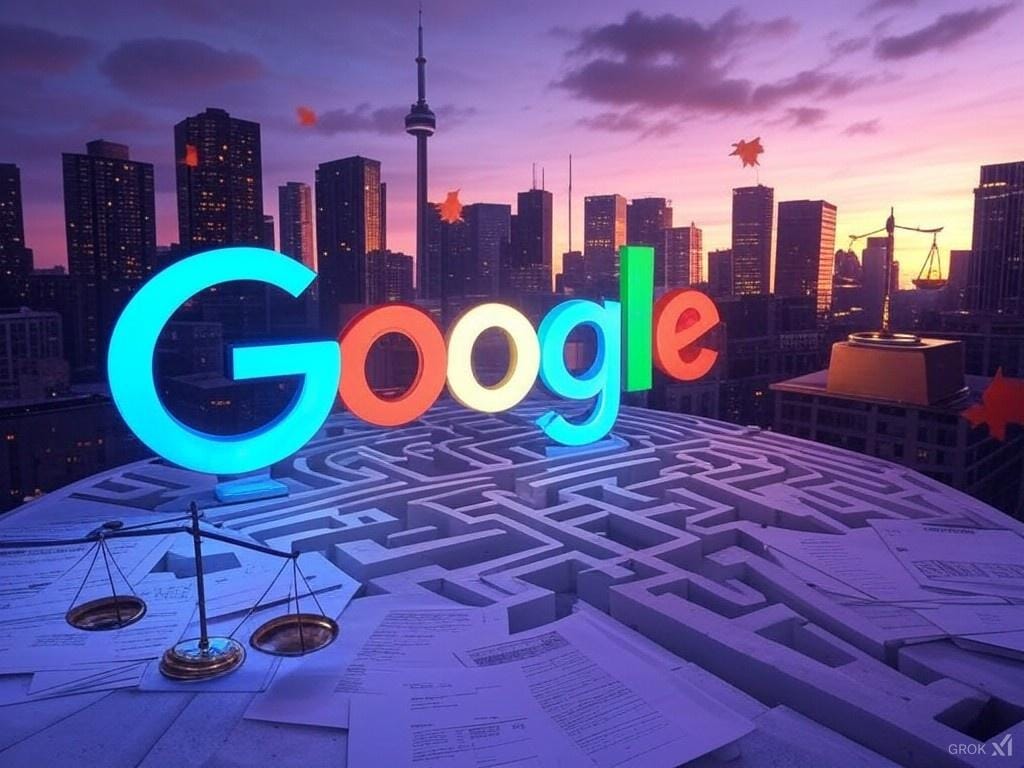Google’s 2025 Legal Reckoning: A Global Showdown with Publishers

In the narrative of digital dominance, Google finds itself at the center of a storm brewed from its interactions with news publishers globally. From courtrooms in the United States to regulatory bodies in Europe, Asia, and beyond, the tech giant is navigating a complex legal landscape that questions its market practices, its control over digital advertising, and its relationship with content creators.
The American Legal Front
Antitrust Allegations in Search
The U.S. Department of Justice (DOJ) launched an antitrust trial in September 2023, challenging Google’s stronghold on search engines. The accusation was clear: Google had maintained an illegal monopoly by ensuring its search engine was the default choice on devices through exclusive agreements with companies like Apple. While the case remains ongoing, the trial marks the most significant antitrust action since Microsoft’s in the late 1990s. If the court rules against Google, remedies could include breaking up its search and advertising businesses or imposing significant structural changes.
Digital Advertising Debate
Following the antitrust trial on search practices, Google faced another legal challenge in September 2024 in Virginia, this time over its control of digital advertising technology. The DOJ and publishers, including The New York Times and Gannett, argue that Google’s dual role as marketplace operator and dominant trader skews competition, reducing publisher revenues. Google’s previous proposal to divest parts of its ad tech business was rejected, signaling regulators’ intent to pursue significant penalties and systemic changes.
The Canadian Confrontation
In Canada, the narrative between Google and publishers has taken a unique turn with the enactment of the Online News Act, or Bill C-18, which received Royal Assent in July 2023. Google, facing the prospect of either compensating Canadian news outlets for content or blocking news in Canada, chose negotiation over confrontation. They’ve agreed to pay Canadian news publishers approximately $100 million annually, a deal that was finalized in December 2023.
This financial commitment is managed through a newly formed entity, the Canadian Journalism Collective (CJC), established in Early 2024, designed to ensure that the funds reach a wide spectrum of Canadian media, from major outlets to Indigenous and minority language publications.
The first payment under this agreement was disbursed in January 2025, marking a tangible step towards supporting Canadian journalism. This agreement signifies a significant acknowledgment by Google of the value of journalism and represents a model that other countries might look to emulate.
However, the path wasn’t uniform across all tech giants. Meta, in contrast, decided to block news content in Canada starting in Late 2024, highlighting the diverse strategies tech companies might adopt when faced with similar legislation. This divergence underscores the complex dynamics of digital content, revenue sharing, and journalism’s sustainability.
The Canadian front serves as a case study on how regulation can force tech giants to the negotiation table, potentially setting a precedent for how digital platforms and news publishers interact globally. Yet, the long-term impacts on the Canadian news landscape, whether this will truly bolster journalism or simply shift the power dynamics, remain under scrutiny and debate.
European Regulatory Challenges
France’s Copyright Conundrum
In response to the EU Copyright Directive (Directive 2019/790), France pushed Google to compensate publishers for using snippets and other content. This led to a $76 million agreement over three years with French publishers. While a step forward, the settlement has been criticized as insufficient by some stakeholders, who argue it does not fully address the imbalance in bargaining power.
German Copyright Clashes
Germany, another front in the copyright battle, has seen Google negotiate with Corint Media, which represents publishers demanding fair compensation for content reuse. While an interim agreement for annual payments exists, disputes continue under Germany’s ancillary copyright law. Major publishers like Axel Springer remain vocal in their calls for greater accountability and transparency from Google.
Japan’s Antitrust Notice
In late 2024, Japan’s Fair Trade Commission (JFTC) announced plans to issue a cease-and-desist order against Google for antitrust violations. The case primarily addresses Google’s dominance in Android OS and app store practices, signaling a shift in how Asian markets are tackling tech monopolies. Japan’s proactive stance could inspire similar actions across the region.

Global Perspectives and Emerging Trends
Australia’s Media Bargaining Code
Australia set a global precedent with its News Media Bargaining Code in 2021, compelling platforms like Google to negotiate payments with publishers. Google’s agreements with companies such as News Corp highlight the growing push for fair revenue sharing worldwide.
AI and Generative Content
As AI-generated content rises, platforms like Google Gemini further complicate publisher relationships. Publishers are increasingly concerned about copyright implications and revenue sharing for AI-trained content, raising new challenges for regulation.
Public Perception and Publisher Critiques
Many publishers argue that Google’s dominance in search and digital advertising has eroded their revenue streams, threatening the sustainability of journalism. Google’s funding of news initiatives is viewed by critics as a strategic move to counter stricter regulations rather than a genuine effort to support publishers.
The Future of Digital Content
These legal battles transcend financial settlements, aiming to redefine the digital ecosystem. They highlight issues of transparency, fairness in digital marketplaces, and the future of journalism. Outcomes from these trials and negotiations could reshape the balance of power in the digital content arena, compelling tech giants to rethink monetization strategies and relationships with content creators.
With increasing scrutiny over its practices and new regulatory frameworks emerging worldwide, Google’s actions in these cases will have far-reaching consequences, not just for the company but for the global digital economy. The year 2025 is shaping up to be a pivotal one, as the culmination of these legal battles forces a recalibration of how technology giants interact with the journalism industry. As the dust settles, the resolution of these issues will likely influence how content is created, shared, and monetized in an interconnected world.







